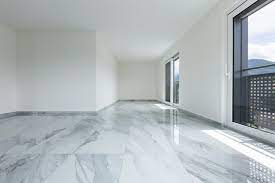Introduction:
Marble flooring is a popular choice for homeowners seeking a luxurious and elegant aesthetic for their homes. With its timeless appeal and unique characteristics, marble offers both beauty and durability. By analyzing the qualities and drawbacks associated with this flooring option, you will gain valuable insights to assist you in choosing the most acceptable flooring solution for your space.
Marble Flooring Pros of :
Aesthetics: One of the most meaningful advantages of marble flooring is its well-executed beauty. Each piece of marble is unique, showcasing intricate veining and stunning color variations. The natural elegance of marble can instantly elevate the look and feel of any room, making it a popular choice for homeowners who value aesthetics.
Durability: Marble is a durable material that can withstand heavy foot traffic and last for generations when properly cared for. With its resistance to scratches, cracks, and chips, marble floor emerges as an excellent choice for high-traffic areas like entryways, living rooms, and kitchens. This durability factor ensures that your flooring remains intact and retains its aesthetic appeal even in busy areas of your home.
Heat Resistance: Marble flooring has excellent heat resistance properties, making it suitable for homes with underfloor heating systems. It can effectively conduct and store heat, providing a warm and comfortable environment during the colder months.
Value and Prestige: Installing marble floor can significantly enhance the value of your home. Its luxurious appeal and timeless beauty are highly sought after, adding a touch of prestige to any property. Marble floors can attract potential buyers and increase the resale value of your home.
Cons of Marble Flooring:
Cost: Marble flooring is generally more expensive compared to other flooring options. The cost involves not only the material itself but also the installation and maintenance expenses. However, considering its durability and timeless appeal, marble flooring is often viewed as a long-term investment.
Porosity: Marble is a porous stone, which means it can absorb liquids and stains if not sealed properly. Spills from common household items such as coffee, wine, or acidic liquids can leave permanent marks on the surface. Regular sealing and maintenance are crucial to keep the marble floor in pristine condition.
High Maintenance: Marble flooring requires regular maintenance to preserve its shine and beauty. It needs to be cleaned with non-abrasive, pH-neutral cleaners and polished periodically to maintain its luster. Additionally, resealing is necessary every few years to protect the surface from stains and scratches.
Vulnerability to Scratches: While marble is relatively durable, it is not entirely scratch-resistant. Heavy furniture, sharp objects, or abrasive cleaning tools can cause scratches on the surface. It’s important to use furniture pads, avoid dragging heavy objects, and exercise caution to prevent scratching the marble flooring.
Conclusion:
Marble flooring offers a timeless and luxurious appeal that can transform any space into a work of art. The unique characteristics, durability, and heat resistance of marble make it a highly sought-after option among homeowners who desire to establish an environment that exudes elegance and sophistication. These appealing features contribute to the popularity of marble as a flooring choice. However, it’s essential to consider the cost, maintenance requirements, and potential vulnerabilities associated with marble flooring. Remember to prioritize proper maintenance and care to ensure your marble flooring remains stunning for years to come.
Disclaimer: Always consult a qualified flooring specialist for personalized recommendations based on your specific needs and circumstances.

